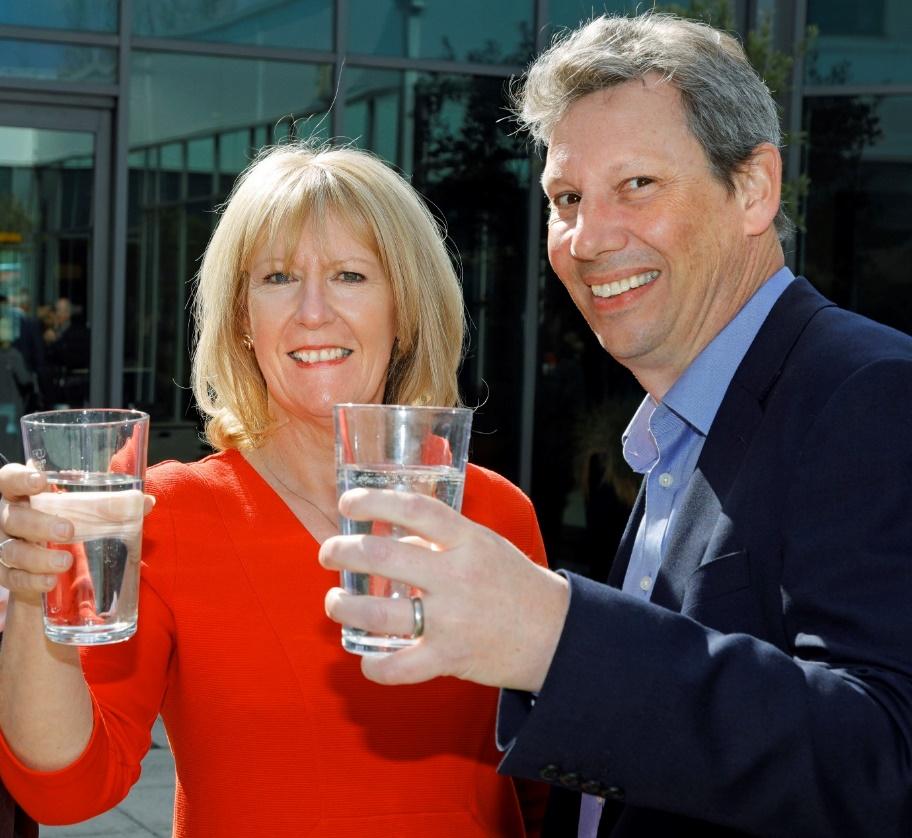8 Glasses of Water Daily for a Healthy Heart
The Water Dispenser & Hydration Association (the WHA) has welcomed scientific research showing that continuously being well-hydrated can help save your life.
Staying well hydrated throughout life could reduce the risk of developing heart failure, according to research presented at The European Society of Cardiology. The analysis was based on studies of over 15,700 people over 25 years.
"Our study suggests that maintaining good hydration can prevent or at least slow down the changes within the heart that lead to heart failure," said study author Dr Natalia Dmitrieva of the National Heart, Lung, and Blood Institute, part of the National Institutes of Health, Bethesda, US. "The findings indicate that we need to pay attention to the amount of fluid we consume every day and take action if we find that we drink too little."
Recommendations on daily fluid intake vary from 1.6 to 2.1 litres for women and 2 to 3 litres for men. However, worldwide surveys have shown that many people do not meet even the lower ends of these ranges.
Phillipa Atkinson-Clow, General Manager of the WHA, the trade body that represents the water dispenser distributors, said: "Maintaining good hydration levels is something that we always recommend. For many people it's not enough to rely on thirst as by the time you are thirsty you are already dehydrated.
"This latest extensive piece of scientific research bears out the need for businesses and those managing public spaces to offer hydration. Of course, water isn't the only fluid but for those wanting a delicious, calorie-free option, water is usually the best choice. As the researchers point out, many people just don't top up their fluid levels as they should. Having access to a water dispenser - be that a bottled water cooler, a mains-fed cooler, or an integrated tap system - is a great way to encourage healthy drinking. People should take the healthy hydration habit with them from work or school to home. Many people are now installing water dispense systems where they live and some public places even have on-the-go water dispensers."
Water dispensers are more sustainable than drinking water from single use plastic bottles and usually the water tastes pleasanter than tap water. The very presence of a dispenser can help nudge people to drink the amount they should.
The most accurate way to test for dehydration is to measure serum sodium levels - a precise measure of hydration status: when people drink less fluid, the concentration of serum sodium increases. The body then attempts to conserve water, activating processes known to contribute to the development of heart failure.
Dr Dmitrieva said: "It is natural to think that hydration and serum sodium should change day to day depending on how much we drink on each day. However, serum sodium concentration remains within a narrow range over long periods, which is likely related to habitual fluid consumption."
"One of the best ways to quickly see if you're drinking enough is to look at the colour of your urine," Phillipa Atkinson-Clow commented. "It should be pale lemon in colour. If it's darker, drink up. The good news is that downing a glass or two of water will help restore your fluid levels very quickly." Download a hydration chart here.
To find a member of the WHA to provide healthy, safe water dispensing equipment visit https://twha.co.uk/find-a-member/

.jpeg)
